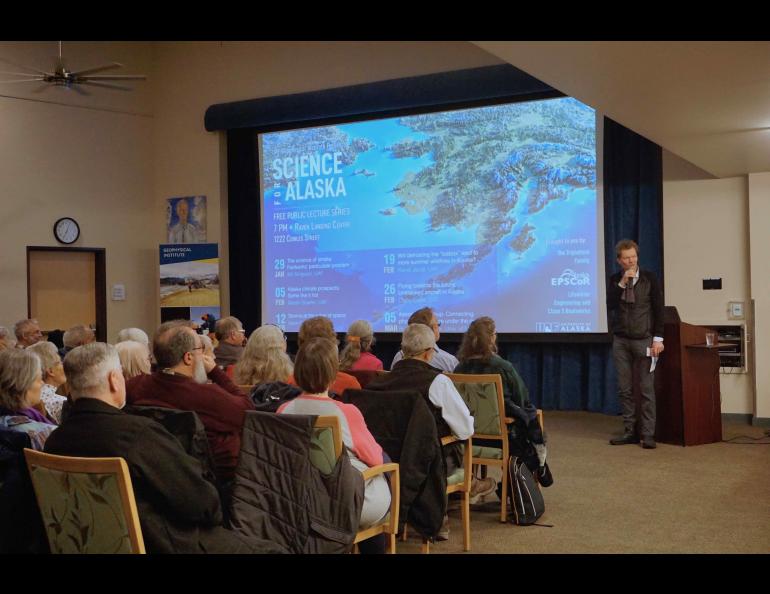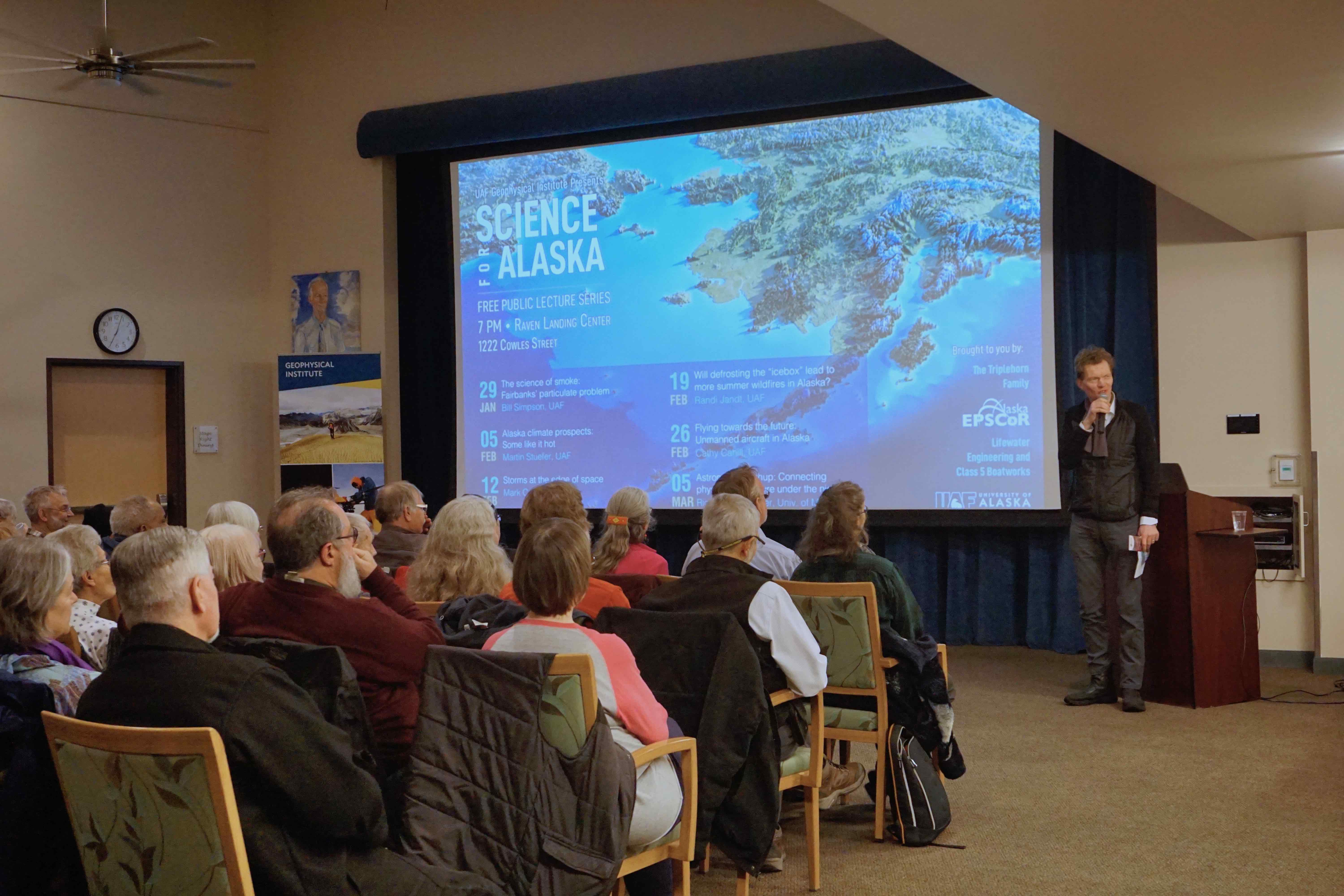
31st annual Science for Alaska talks and outreach events announced
The University of Alaska Fairbanks Geophysical Institute will host free public talks about tracking space debris, fostering education using the outdoors, new techniques for understanding aurora, the 1964 Great Alaska Earthquake, and climate change and its effects on Alaska’s wildlife.
For over 30 years, the Geophysical Institute has hosted the Science for Alaska talk series as one of its largest public outreach efforts. The series brings information about current research to Alaskans from scientists with expertise across the state.
New this year, Science for Alaska is offering free outreach events and K-12 science activities prior to the spring talk series.
Snow Science Saturday
Saturday, Jan. 28, 10:30 a.m. to 4:30 p.m.
Morris Thompson Cultural and Visitors Center
Our Winter World and GLOBE-Alaska, the Global Learning and Observations to Benefit the Environment program, are collaborating with the Geophysical Institute to learn how people, animals and plants rely on snow. Join us to become a citizen scientist, dig snow pits, simulate an avalanche, learn about water molecules and more. All ages welcome!
Space Science
Tuesday, Jan. 31 , 3:30 to 5:30 p.m.
Nordale Education Center
Fairbanks Building Educational Success Together Homeschool joins the Geophysical Institute for an afternoon of night sky wonder. Bring your family and friends for space exploration, hands-on aurora activities and stargazing inside a planetarium.
Science for Alaska: First Friday kickoff
Friday, Feb. 3, 5:30 to 7 p.m.
The UAF Pub
Enjoy a storytelling evening of six short, engaging, image-based talks about glaciers, earthquakes, the High-frequency Active Auroral Research Program facility, Fairbanks winter air quality, the Alaska Satellite Facility and coastal erosion fieldwork during Typhoon Merbok. Attendees must be 21+ due to location.
The traditional 2023 Science for Alaska lecture series begins Tuesday, Feb. 7, and runs every Tuesday through March 7. Talks start at 7 p.m. on campus in the Schaible Auditorium and will be streamed live to Zoom and the UAF and Geophysical Institute Facebook pages. On-campus parking is always free after 5 p.m. Presenters will answer questions after each talk.
Here are the 2023 Tuesday lectures and dates:
- Feb. 7: “Detecting Space-Debris Bullets,” Paul A. Bernhardt, research professor
- Feb. 14: “Inspiring Girls Expeditions Alaska: Teaching Science and Art with Nature’s Guidance,” Sarah Clement, Ph.D. candidate and program coordinator of Inspiring Girls Expeditions, and Joanna Young, postdoctoral fellow and director of Inspiring Girls Expeditions
- Feb. 21: “Satellites to Cell Phones: New Ways of Understanding the Aurora,” Doğacan Su Öztürk, research assistant professor
- Feb. 28: “Plate to Plate: Rupture of the Great Alaska Earthquake,” Evans Onyango, postdoctoral fellow
- March 7: “Gnawing and Thawing: Beavers and Rapid Change in Northwest Alaska,” Ken Tape, research associate professor, and Seth Kantner, Alaska writer and wildlife photographer
Lectures can be viewed on the Science for Alaska website or the Geophysical Institute YouTube channel after the series concludes in March. They also will be available on DVDs through the Alaska library system.
Register here to watch on Zoom.
Join the events on Facebook: 2023 Science for Alaska talk series; and for the Feb. 3 event, Science for Alaska: First Friday Kickoff at the UAF Pub.
For more about the lectures and videos of past talks, please visit the Science for Alaska website or the Geophysical Institute Facebook page @UAF.GI.
Download a series flyer here.
The 2023 Science for Alaska lecture series is sponsored by the Triplehorn family, Lifewater Engineering Co., Vic and Vicki Weinstein, the Alaska Established Program to Stimulate Competitive Research and UAF.
• Rod Boyce, UAF Geophysical Institute, 907-474-7185, rcboyce@alaska.edu





